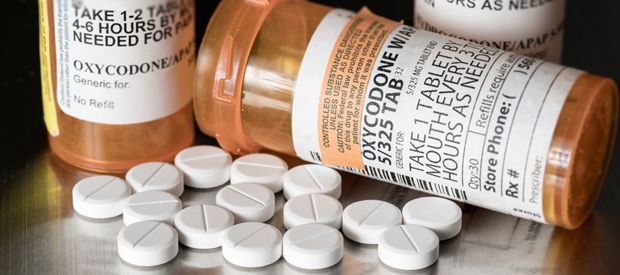How to safely prescribe and manage opioids
Avoid legal trouble by doing a thorough review of the electronic prescription process, security options, audits and potential loopholes.
Steve Heap/Shutterstock

In April, I had the opportunity to speak at the annual meeting for American Society of Addiction Medicine. The meeting explored the many issues presented by addiction in this country, largely from a clinical perspective.
My colleague, Effrem Grail, and I shared recent national Drug Enforcement Administration (DEA) actions against physicians who prescribe opioids and what physicians can do to protect themselves and their practices. In particular, we stressed the precautions physicians should consider when patients misuse and abuse opioids in the practice as well as ways to assist patients with addiction.
Another topic I counsel my clients on is addiction and misuse of drugs by employees. Many practices run into situations where employees have called in false prescriptions, stolen prescription pads or helped themselves to samples, among other similar scenarios.
Read more: 13 red flags your pain patient is a drug seeker
Fortunately, we find most practices can avoid these situations by ensuring appropriate safeguards. Despite best efforts, even the most compliant and closely regulated practices can still face challenges, and the culprits can be both physicians and non-physicians. Addiction does not discriminate.
I recently helped a client who was dealing with opioid theft among employees. Employee A rifled through Employee B’s purse to steal prescription pain medications, which were appropriately prescribed for a recent surgery. Employee A noticed a few pills missing from her prescription bottle on more than one occasion that she could not account for.
Although the practice suspected who the culprit might be, there was no way to say anything without evidence, which was finally obtained through security cameras. The practice confronted Employee B, who with the practice’s support, went to a treatment program. She was not terminated.
The practice took the opportunity to develop new protocols for surveillance of common areas and created a secure storage locker area for staff. They also updated the security protocols related to drug samples and prescriptions. This situation could happen in any business, not just a medical practice, though access to prescription pads and controlled substances do pose additional challenges.
Read more: Stay out of ppioid-related prescription trouble
Similarly, a large and sophisticated physician practice with many security protocols in place received a call from a pharmacist questioning some unusual prescriptions. The practice determined that the prescriptions were written for patients who visited the practice once but for whom there was no evidence of a prescription in the medical record. It turned out that a feature of the practice’s EHR allowed prescriptions to be canceled after a prescription had already been printed.
This loophole allowed a practice employee to write a large number of false opioid prescriptions undetected for years. The prescriptions were written to a select few individuals, including the employee, all of whom were in the EHR because of a single (now questionable) patient visit. The practice was able to track the deleted prescriptions in the system and identify the culprit. In this instance, the practice had no choice but to immediately terminate the employee and alert the police as well as the DEA.
Read more: Medical license retention tips
The client’s EHR vendor has been working to address this loophole, and they have created alerts as well as a cross-check system. However, it is certainly possible that other practices may have the same issue and are simply unaware.
All workplaces face some of these challenges as long as there are individuals looking for opioids for themselves or to provide them to others. However, medical practices serve as an easier gateway to opioids and must be on alert at all times.
Developing a strategy is key to protecting and reducing practices’ liability. This can be done through a combination of safeguards, including video surveillance, EHR review and audit, and random employee drug testing (if appropriate). Discuss with your legal advisors what challenges your practice might face and what legal options are available to avoid misuse.
Ericka L. Adler has practiced in the area of regulatory and transactional healthcare law for more than 20 years. She represents physicians and other healthcare providers across the country in their day-to-day legal needs, including contract negotiations, sale transactions, and complex joint ventures. She also works with providers on a wide variety of compliance issues such as Stark Law, Anti-Kickback Statute, and HIPAA. Ericka has been writing for Physicians Practice since 2011.